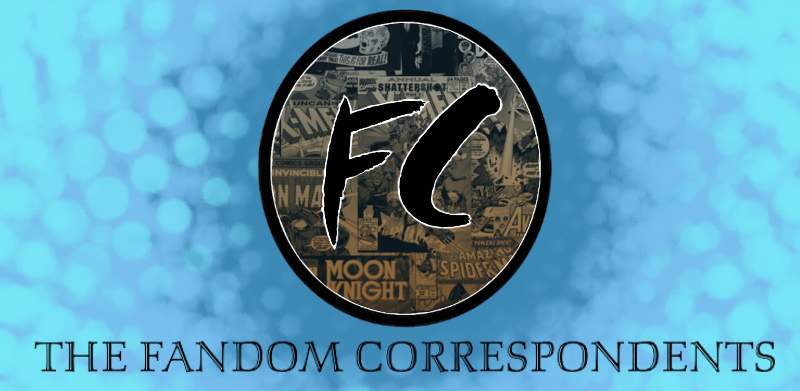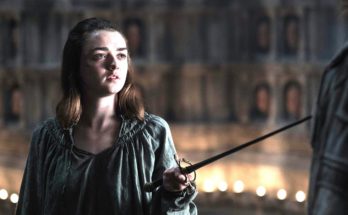There are two goals in the world of Game of Thrones. Two “MacGuffins” that every character in Westeros is effected by and forced to address. One is the titular Throne; in this case a fearsome Iron Throne made from the swords of those conquered by a king from long ago. Being on and around this throne allows one the power to shape the world as he/she sees fit. Wrongs can be righted. Revenge can be taken. The person who sits upon the throne wields world shaping power.
The other goal is actually a threat that must be dealt with, namely, the Night King and his army of undead soldiers. This MacGuffin represents an existential dread; death is literally coming and the choices that are made will decide the fate of Westeros and all of its people.
The Throne and the Dead. After 7 seasons, and 67 hours of television, all who watch the show would agree that Game of Thrones is, in essence, a story about people vying for and defending people from these two entities.
Because of this, I find myself constantly confused by those who claim that Eddard Stark is a good guy. At best, he is boorish buffoon, who finds himself in a situation that he is in no way suited for, and at worst, he is the villain of the first season. Why would I make such a claim? Because for the entirety of his time in this show Ned is either running away from one MacGuffin (The Throne), or outright ignoring the other (The Dead).
The first action of consequence we see Ned take is his beheading of a deserter from the Night’s Watch. The deserter, who goes to his death as honorably as possible, speaks of seeing a White Walker. Ned chops off his head, and then decides to use this instance to teach Bran the most misunderstood phrase in the show; “He who passes the sentence, should swing the sword.” With this statement, the show begins its trickery of the viewer. The viewer is somewhat bewitched by the rugged honor implied in this statement. But notice that the statement speaks nothing of the righteousness of the sentence. In fact, because at this point in the show we have seen the White Walkers, and the dead come alive, we know that the sentence that Ned has just passed is a little unjust. And just as this statement places honor above righteousness, Ned’s fatal flaw will be that he is willing to let horrible things happen, as long as they follow the Westerosi code of honor; a code, mind you, that seems to shift with the wind.
In regards to the White Walker threat, Ned’s role is admittedly miniscule. But, he is the first character on the show to hear information on the matter, and he ignores. Even after Benjen, his brother, tells him that the deserter was a capable Ranger, he decides to ignore the matter and instead focuses on solving Jon Arryn’s murder, and helping Robert govern.
If we still consider Ned to be a hero, then we are presented with a sizable roadblock in the form of his friend, Robert Baratheon. Robert is given some of the best lines in the show, and is portrayed perfectly by Mark Addy, so the audience can almost be forgiven for overlooking the fact that Robert is a pretty evil character. Not gray; evil. He has no problem at all with the death of children, for instance. His bodyguard runs down the butcher boy, and he either is ignorant of the fact (which should be impossible), or does not care. Ned learns early on that Robert is a fool on the kingsroad, and he still follows him to the capital. After, honorably, killing his daughter’s pet direwolf, of course.
So, let’s discuss Ned’s plan after he discovers that all of Cersei’s children were born of incest. He plans to use the document that Robert gives him (which he changed the wording to) to forcefully take the throne from Joffrey, with as little bloodshed as possible. He will then give the throne to Stannis, because Stannis is the second oldest Baratheon brother. Instead of focusing on the idiocy of this plan, which requires substantial assistance from Janos Slynt, I would instead like to ask why Stannis is a good choice for king? We can assume that Ned has no idea that Stannis has joined a cult that burns people, but he also does not know that Joffrey is a psychopath. When Ned is holding Robert’s last will and testament, he can honestly not say that Stannis will be a better king than Joffrey. And to his credit, he never really makes that argument. Instead, he believes Stannis should have the Throne because it is his “by right.” Once again, man made honor trumps the righteous action. A righteous action that is presented to him by Littlefinger of all people, who tells him to swear fealty to Joffrey and act as protector of the realm. Ned does not want to kill Joffrey, so the righteous thing to do is stay in his position of power and govern. Years of bloodshed is averted. Countless atrocities are stopped from happening. And, if Joffrey does not stand up to Tyrion when he calls him out, then we can be sure that he is not standing up to Ned Stark. But, Ned does not make smart choices or right choices. He is a man of honor.
Every hero that is still alive in Game of Thrones has kept their life because they made the right decision as opposed to the honorable one. Jon, Daenerys, Tyrion, Arya, Sansa, even Cersei; they all realize that the “honor” present in Westeros is a hindrance, more than a help. Cersei even tries to educate Ned on this very fact. When Ned confronts her, she mentions that Jamie told her that Ned was the first person to reach the Throne after the Mad King’s death. He could have made himself King, and he would have had the ability to shape Westeros as he saw fit. Instead, he made Robert king. He sentenced Westeros to Robert as king, swung the sword in battle for him, and went home to Winterfell. And therein lies his true fault. Having passed an unjust sentence on the entire realm, he trusts instead on false notions of honor to maintain peace. Eddard Stark losing his head is the culmination of years as an honorable man. But if the basis of one’s honor upholds injustice and oppression, then honor is useless, and therefore every sentence he passed, every judgment he made is tainted. Perhaps it should be said that he who passes an unjust sentence will face the swing of a sword.



